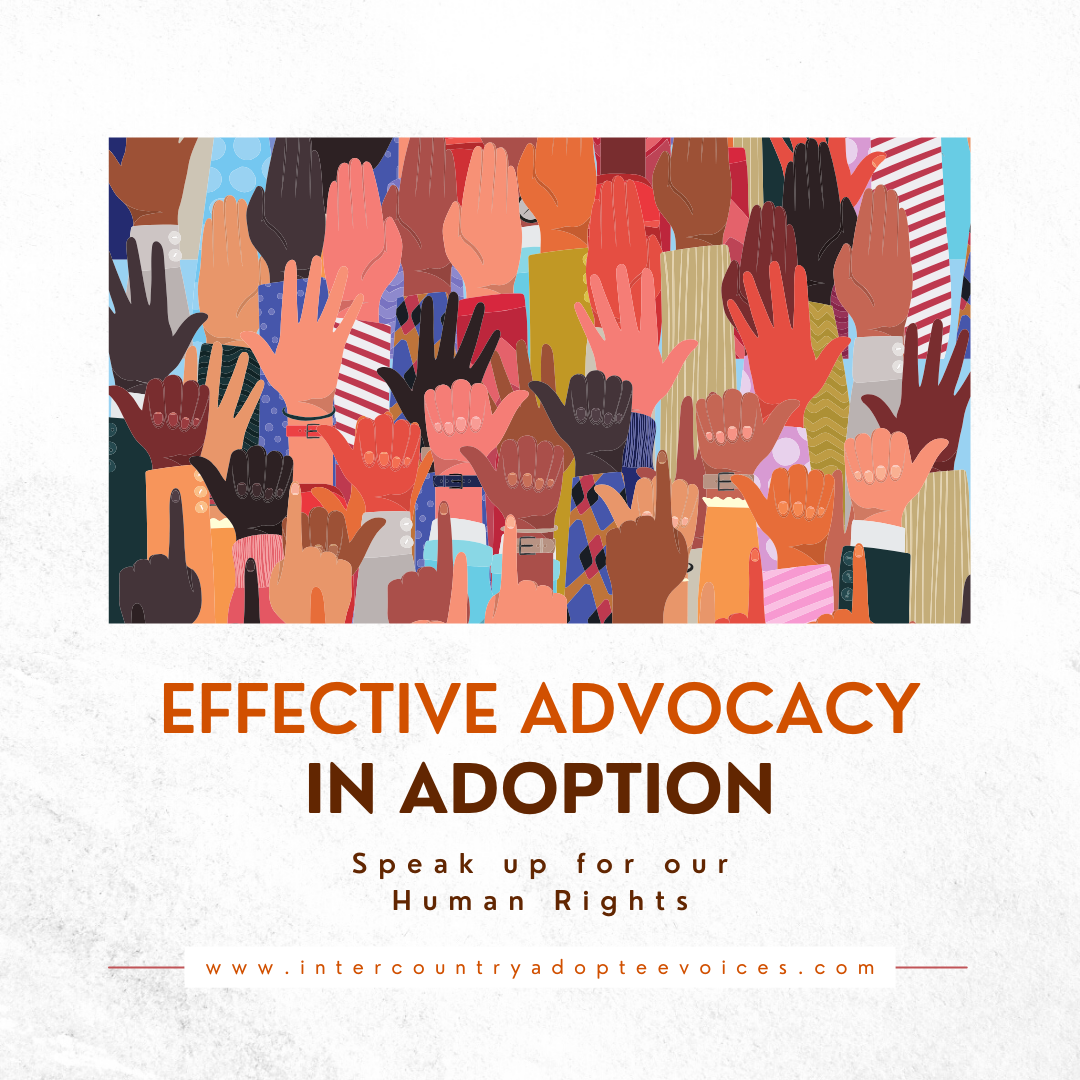标签: 被收养者宣传
-

Adoptees as experts and influencing international standards through advocacy
—
由
于 1993 Hague Convention, Adoptee Activism, Adoptees Educate, Adoption Education for Professionals, 领养改革, Adoptive Country, Birth Country, Birth parents speak out, Complexities in Adoption, Critical Thinking in Adoption, 家庭保全, Illegal Adoption, Impacts to Biological Families, Is adoption the best option, Lifelong Impacts of Adoption, Politics of Adoption, Reparation in Adoption, Rights in Adoption, 跨种族收养, Trauma in Adoption, UN Joint Statement Illegal AdoptionLynelle shares about the journey from understanding her adoption to becoming an adoptee advocate, pushing for much needed change at international levels.
-
毛利人收养者致新西兰司法部长的信
Bev Reweti, transracial Maori adoptee, shares about her fight for justice and recognition of the historical wrongs to Maori adoptees like herself, in New Zealand.
-
My Asian American Adoptee Experience
Ming Foxweldon shares for #AAPIHM what it’s like to be Asian American.
-
Adoptee Activism in America
—
由
于 1993 Hague Convention, Adoptee Activism, Adoptees Educate, Adoption Agencies, Adoption Education for Professionals, 领养改革, Birth Country, Complexities in Adoption, Critical Thinking in Adoption, Diversity in Adoption, Is adoption the best option, Lifelong Impacts of Adoption, Politics of Adoption, Rights in Adoption, 跨种族收养, Trauma in Adoption, 美国Lynelle shares about the importance of including adoptee lived experience at the Adoption Symposium for the US Department of State in 2020.